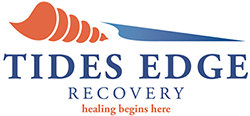 Deciding to stop using drugs and alcohol is the first step toward achieving recovery but also the most difficult. Successful treatment requires you to completely withdrawal from your substance of choice. This can be hard to achieve without the help of a medically assisted detox center. Inpatient, partial hospitalization and outpatient programs can help with detoxing. Each has unique choices when it comes to selecting the right medial detox program for you.
Deciding to stop using drugs and alcohol is the first step toward achieving recovery but also the most difficult. Successful treatment requires you to completely withdrawal from your substance of choice. This can be hard to achieve without the help of a medically assisted detox center. Inpatient, partial hospitalization and outpatient programs can help with detoxing. Each has unique choices when it comes to selecting the right medial detox program for you.
The severity of your addiction, as well as how much time you can commit to treatment, are factors you should consider when choosing a medical detox program. Medically assisted detox programs are also more successful for withdrawal than trying methods such as going “cold turkey.” Medical supervision can help identify underlying medical conditions when you are withdrawing and help protect against severe withdrawal symptoms.
Our Florida detox center can also help decrease cravings and prevent relapses. Find out more by calling us today at 866.723.3127.
Our Medical Assisted Detox Center Program
During a medically supervised detox, our staff helps oversee your health while you are going through withdrawal. It is common to meet with doctors and nurses throughout the day, who help monitor your vitals and symptoms. Nurses will ask if your symptoms are getting better or worse, which allows the doctor to accurately prescribe medications to ease symptoms.
A medical detox program will offer you regular access to staff. Additionally, you may receive medical detox services in a variety of settings, including in inpatient, outpatient, and partial hospitalization environments. Inpatient programs are 24 hours a day and require that you remain on campus. The residential aspect allows you to have access to medical staff around the clock. This is necessary if you have a severe addiction. Outpatient programs can distribute medications that can limit withdrawal symptoms. For opiate addiction, outpatient providers may offer medications like Suboxone, Subutex or Methadone.
Why is Medication-Assisted Treatment Effective?
Medication-assisted treatment, also known as MAT, is an important part of addiction recovery. It helps people to manage their withdrawal symptoms and cravings, so they can focus on other aspects of their recovery.
MAT is a treatment option for a variety of substances, including opioids, alcohol, and other drugs. It is typically combined with counseling and other support services. It can be an important part of recovery for many people, as it can help to reduce the risk of relapse and improve overall health.
Medication-assisted treatment is effective. It’s been shown to:
- Decrease drug use
- Lower criminal activity
- Increase employment rates
- Improve social functioning
If you or someone you know is struggling with addiction, medication-assisted treatment may be a good option to consider.
Partial Hospitalization Programs vs. Outpatient Programs
Partial hospitalization detox programs are more intensive than outpatient care but let you return home in the evenings. They provide structured daytime support, including medical care and therapy, while allowing you to maintain normalcy at home. This option is ideal for those needing intensive care but with home responsibilities or a preference for sleeping at home. It balances outpatient and inpatient treatment, offering strong support.
An inpatient detox program, on the other hand, strives to make withdrawal as tolerable and comfortable as possible, offering 24/7 medical supervision and support. These programs help provide acute, short-term Florida detox services to manage the initial phases of detox safely. Inpatient programs are particularly suited for those with severe addiction or those at high risk of medical complications during withdrawal. The constant support ensures that patients have access to immediate care, creating a safer and more stable detox process.
Withdrawal symptoms can last days, weeks, or even months, making follow-up care essential to recovery and relapse prevention. This includes ongoing therapy and support groups. Building a support network and staying accountable are key to long-term sobriety. Without consistent follow-up, it can be hard to maintain progress from detox and recovery.
What Happens After Medically Assisted Detox?
Medical detox helps you get through the initial phase of recovery, but it does not provide treatments such as therapy or counseling. While detoxing from your substance of choice is a significant first step in recovery, it is also essential to consider participating in additional treatment.
Participating in an inpatient or outpatient program following medical detox helps increase your chances of maintaining sobriety and abstinence. It also helps you learn how to deal with triggers and cravings, which decrease your chances of relapsing.
These programs provide structured support, including therapy, peer connections, and skill-building activities, to help you build a strong foundation for long-term recovery. Without this additional treatment, the risk of falling back into destructive patterns is significantly higher.
Post-Medical Detox Treatments
- Inpatient and residential treatment (30–90 days) – Offers a structured environment with 24/7 care, ideal for severe cases.
- Intensive outpatient programs – Provide a higher level of care without the need for overnight stays, suitable for those with a supportive home environment.
- Partial hospitalization – Day programs that offer intensive treatment while allowing patients to return home in the evenings.
- Psychotherapy – Individual therapy sessions with a licensed professional to address underlying mental health issues.
- Peer-led support groups, such as AA or NA – Community-based groups offering support from others who have faced similar challenges.
- Group therapy – Facilitated by a therapist, these sessions allow individuals to share experiences and offer mutual support.
- Sober living accommodations – Provide a drug- and alcohol-free living environment, often with support services to help maintain sobriety.
Completing a treatment program following alcohol detox can help you create a strong support network. Treatment programs can provide additional help such as social services, job placement, and vocational rehabilitation, and transportation and housing assistance.
Find the Medical Detox Program You Need at Tides Edge Detox Center
Recovering from substance abuse starts with medically assisted detox. However, detoxing alone isn’t enough to provide the required help and support to achieve long-term recovery. Finding a treatment center offering a medical detox program with individualized care and various treatment options can be difficult. To learn more about how Tides Edge detox center can help you, call us today at 866.723.3127 or use our online contact form.


